Hunting Zero Read online
Page 2
“Can’t say I blame you,” the woman said to Rais. “Normally I would never stop in a place like this, but I spilled coffee on myself on the way to visit family, and… uh…” She trailed off as she gazed into the mirror.
In the reflection, the woman could see the open stall door, and Maya seated there atop the closed toilet. Maya had no idea what she might look like to a stranger—hair tangled, cheeks puffy from crying, eyes rimmed red—but she could imagine it was likely cause for alarm.
The woman’s gaze flitted to Rais and then back to the mirror. “Uh… I just couldn’t drive another hour and a half with my hands sticky…” She glanced over her shoulder, the water still running, and then she mouthed three very clear words to Maya.
Are you okay?
Maya’s lower lip trembled. Please don’t talk to me. Please don’t even look at me. She slowly shook her head. No.
Rais’s back must have been turned again, facing the door, because the woman nodded slowly. No! Maya thought desperately. She wasn’t trying to plead for help.
She was trying to keep this woman from suffering the same fate as Thompson.
Maya waved her hand at the woman and mouthed one word back at her. Go. Go.
The woman frowned deeply, her hands still dripping wet. She glanced in Rais’s direction again. “I suppose it would be too much to ask for paper towels, huh?”
She said it a bit too forcefully.
Then she gestured to Maya with her thumb and pinky, making a phone signal with her hand. She seemed to be suggesting she would call someone.
Please just go.
As the woman turned back toward the door, there was a blur of motion in the air. It happened so fast that at first Maya wasn’t even sure it had happened at all. The woman froze, her eyes widening in shock.
A thin arc of blood spurted from her open throat, spraying against the mirror and sink.
Maya clamped both hands over her mouth to stifle the scream that rose from her lungs. At the same time, the woman’s hands flew to her neck, but there was no stopping the damage that had been done. Blood ran in rivulets over and between her fingers as she sank to her knees, a soft gurgle escaping her lips.
Maya squeezed her eyes shut, both hands still over her mouth. She didn’t want to see it. She didn’t want to watch this woman die because of her. Her breath came in heaving, smothered sobs. From the next stall she heard Sara whimpering softly.
When she dared to open her eyes again, the woman stared back at her. One cheek rested against the filthy wet floor.
The pool of blood that had escaped her neck nearly reached Maya’s feet.
Rais bent at the waist and cleaned his knife on the woman’s blouse. When he looked up at Maya again, it was not anger or distress in his too-green eyes. It was disappointment.
“I told you what would happen,” he said softly. “You tried to signal to her.”
Tears blurred Maya’s vision. “No,” she managed to choke out. She couldn’t control her trembling lips, her shaking hands. “I-I didn’t…”
“Yes,” he said calmly. “You did. Her blood is on your hands.”
Maya began hyperventilating, her breaths coming in wheezing gulps. She bent over, putting her head between her knees, her eyes clenched shut and her fingers in her hair.
First Mr. Thompson, and now this innocent woman. They had both died simply by being too close to her, too close to what this maniac wanted—and he had proven twice now that he was willing to kill, even indiscriminately, to get what he wanted.
When she finally regained control of her breathing and dared to look up again, Rais had the woman’s black handbag and was rooting through it. She watched as he took out her phone and tore out both the battery and the SIM card.
“Stand up,” he ordered Maya as he entered the stall. She stood quickly, flattening herself against the metal stall partition and holding her breath.
Rais flushed the battery and SIM down the toilet. Then he turned to face her, only inches away in the narrow space. She couldn’t meet his gaze. Instead she stared at his chin.
He dangled something in front of her face—a set of car keys.
“Let’s go,” he said quietly. He left the stall, seemingly having no problem walking through the wide puddle of blood on the floor.
Maya blinked. The rest stop wasn’t at all about letting them use the bathroom. It wasn’t this assassin showing an ounce of humanity. It was a chance for him to ditch Thompson’s truck. Because the police might be looking for it.
At least she hoped they were. If her father hadn’t come home yet, there was little chance that anyone would know that the Lawson girls were missing.
Maya stepped as gingerly as possible to avoid the puddle of blood—and to avoid looking at the body on the floor. Every joint felt like gelatin. She felt weak, powerless, against this man. All the resolve that she had mustered only minutes ago in the truck had dissolved like sugar in boiling water.
She took Sara by the hand. “Don’t look,” she whispered, and directed her younger sister around the woman’s body. Sara stared at the ceiling, taking long breaths through her open mouth. Fresh tears streaked both of her cheeks. Her face was white as a sheet and her hand felt cold, clammy.
Rais pulled the bathroom door open just a few inches and peered outside. Then he held up a hand. “Wait.”
Maya peered around him and saw a portly man in a trucker’s cap walking away from the men’s room, patting his hands dry on his jeans. She squeezed Sara’s hand, and with her other she instinctively smoothed her own tangled, messy hair.
She couldn’t fight this assassin, not unless she had a weapon. She couldn’t try to enlist the help of a stranger, or they might suffer the same fate as the dead woman behind them. She had only one choice now, and that was to wait and hope that her dad came for them… which he could only do if he knew where they were, and there was nothing to help him find them. Maya had no way to leave clues or a trail.
Her fingers snagged in her hair and came away with a few loose strands. She shook them off her hand and they fell slowly to the floor.
Hair.
She had hair. And hair could be tested—that was basic forensics. Blood, saliva, hair. Any of those things could prove that she had been somewhere, and that she had still been alive when she was. When the authorities found Thompson’s truck, they would find the dead woman, and they would collect samples. They would find her hair. Her dad would know they had been there.
“Go,” Rais told them. “Outside.” He held the door as the two girls, holding hands, left the bathroom. He followed, glancing around once more to ensure no one was watching. Then he took out Mr. Thompson’s heavy Smith & Wesson revolver and flipped it around in his hand. With a single, solid motion, he swung the gun’s handle downward and snapped the doorknob off the closed bathroom door.
“Blue car.” He gestured with his chin and put the gun away. The girls walked slowly toward a dark blue sedan parked a few spaces away from Thompson’s truck. Sara’s hand trembled in Maya’s—or it might have been Maya doing the trembling, she wasn’t sure.
Rais pulled the car out of the rest stop and back onto the interstate, but not south, the way they had been going before. Instead he doubled back and headed north. Maya understood what he was doing; when the authorities found Thompson’s truck they would assume he would continue south. They would be looking for him, and them, in the wrong places.
Maya yanked out a few strands of her hair and dropped them to the floor of the car. The psychopath who had kidnapped them was right about one thing; their fate was being determined by another power, in this case, him. And it was one that Maya could not yet fully comprehend.
They had only one chance now to avoid whatever fate was in store for them.
“Dad will come,” she whispered in her sister’s ear. “He’ll find us.”
She tried not to sound as uncertain as she felt.
CHAPTER TWO
Reid Lawson moved quickly up the stairs of his home in Alexandria, Virginia.
His movements seemed wooden, his legs still feeling numb from the shock he’d experienced only minutes earlier, but his stare was set in an expression of grim determination. He took the steps two at a time to the second floor, though he dreaded what would be up there—or, more appropriately, what wouldn’t.
Downstairs and outside was a flurry of activity. In the street in front of his house were no fewer than four police cars, two ambulances, and a fire truck, all protocol for a situation like this one. Uniformed cops stretched caution tape in an X over his front door. Forensics collected samples of Thompson’s blood from the foyer and hair follicles from his girls’ pillows.
Reid could barely remember even calling the authorities. He barely recalled giving the police a statement, a stammering patchwork of fragmented sentences punctuated by short, gasping breaths while his mind swam with horrifying possibilities.
He had gone away for the weekend with a friend. A neighbor was watching his girls.
The neighbor was now dead. His girls were gone.
Reid made a call as he reached the top of the stairs and away from prying ears.
“You should have called us first,” Cartwright said as greeting. Deputy Director Shawn Cartwright was head of the Special Activities Division and, unofficially, Reid’s boss at the CIA.
They’ve already heard. “How did you know?”
“You’re flagged,” Cartwright said. “We all are. Anytime our info comes up in a system—name, address, social, anything—it’s automatically sent to the NSA with priority. Hell, you get a speeding ticket the agency will know before the cop lets you drive away.”
“I have to find them.” Every second that ticked by was a thunderous chorus reminding him that he might never see his daughters again if he didn’t leave now, this instant. “I saw Thompson’s body. He’s been dead for at least twenty-four hours, which is a significant lead on us. I need equipment, and I need to go now.”
Two years earlier, when his wife, Kate, had died suddenly of an ischemic stroke, he’d felt completely numb. A dazed, detached feeling had overtaken him. Nothing felt real, as if any moment he would wake from the nightmare to find it had all been in his head.
He hadn’t been there for her. He had been at a conference on ancient European history—no, that wasn’t the truth. That was his cover story while he was on a CIA op in Bangladesh, pursuing a lead on a terrorist faction.
He wasn’t there for Kate back then. He wasn’t there for his girls when they were taken.
But he was sure as hell going to be there for them now.
“We’re going to help you, Zero,” Cartwright assured him. “You’re one of us, and we take care of our own. We’re sending techs to your house to assist the police in their investigation, posing as Homeland Security personnel. Our forensics are faster; we should have a bead on who did this within the—”
“I know who did this,” Reid interrupted. “It was him.” There was no doubt in Reid’s mind who was responsible for this, who had come and taken his girls. “Rais.” Just saying the name aloud renewed Reid’s rage, starting in his chest and radiating through every limb. He clenched his fists to keep his hands from shaking. “The Amun assassin that escaped from Switzerland. This was him.”
Cartwright sighed. “Zero, until there’s evidence, we don’t know that for sure.”
“I do. I know it. He sent me a picture of them.” He had received a photo, sent to Sara’s phone from Maya’s. The picture was of his daughters, still in their pajamas, huddled together in the back of Thompson’s stolen truck.
“Kent,” the deputy director said carefully, “you’ve made a lot of enemies. This doesn’t confirm—”
“It was him. I know it was him. That photo is proof of life. He’s taunting me. Anyone else might have just…” He couldn’t bring himself to say it aloud, but any of the other myriad foes Kent Steele had amassed over his career might have just killed his girls as revenge. Rais was doing this because he was a fanatic who believed he was destined to kill Kent Steele. That meant that eventually the assassin would want Reid to find him—and hopefully, the girls as well.
Whether or not they’re alive when I do, though… He gripped his forehead with both hands as if he could somehow pry the thought from his head. Stay clear-headed. You can’t think like that.
“Zero?” Cartwright said. “You still with me?”
Reid took a calming breath. “I’m here. Listen, we need to track Thompson’s truck. It’s a newer model; it has a GPS unit. He also has Maya’s phone. I’m sure the agency has the number on file.” Both the truck and the phone could be tracked; if the locations synced and Rais hadn’t ditched either of them yet, it would give them a solid direction to pursue.
“Kent, listen…” Cartwright tried to say, but Reid immediately cut him off.
“We know there are members of Amun in the United States,” he rattled on, unabated. Two terrorists had gone after his girls once before on a New Jersey boardwalk. “So it’s possible there’s an Amun safe house somewhere within US borders. We should contact H-6 and see if we can get any info out of the detainees.” H-6 was a CIA black site in Morocco, where detained members of the terrorist organization were currently being held.
“Zero—” Cartwright tried again to break into the one-sided conversation.
“I’m packing a bag and heading out the door in two minutes,” Reid told him as he hurried into his bedroom. Every moment that passed was another moment that his girls were farther away from him. “The TSA should be on alert, in case he tries to take them out of the country. Same with ports and train stations. And highway cameras—we can access those. As soon as we have a lead, have someone meet me. I’ll need a car, something fast. And an agency phone, a GPS tracker, guns—”
“Kent!” Cartwright barked into the phone. “Just stop a second, all right?”
“Stop? These are my little girls, Cartwright. I need information. I need help…”
The deputy director sighed heavily, and Reid immediately knew something was very wrong. “You’re not going on this op, Agent,” Cartwright told him. “You’re too close.”
Reid’s chest heaved, his anger swelling again. “What are you talking about?” he asked quietly. “Just what the hell are you talking about? I’m going after my girls—”
“You’re not.”
“These are my children…”
“Listen to yourself,” Cartwright said sharply. “You’re ranting. You’re emotional. This is a conflict of interest. We can’t allow it.”
“You know I’m the best person for this,” Reid said forcefully. No one else would be going for his children. It would be him. It had to be him.
“I’m sorry. But you have a habit of attracting the wrong kind of attention,” Cartwright said, as if that was an explanation. “The higher-ups, they are trying to avoid a… repeat performance, if you will.”
Reid balked. He knew precisely what Cartwright was talking about, though he didn’t actually remember it. Two years ago his wife, Kate, died, and Kent Steele buried his grief in his work. He went on a weeks-long spree, cutting off communication with his team as he pursued members of Amun and leads across Europe. He refused to come in when the CIA called him back. He didn’t listen to anyone—not Maria Johansson, not his best friend, Alan Reidigger. From what Reid gathered, he left a slew of bodies in his wake that most described as nothing short of a rampage. In fact, it was the primary reason that the name “Agent Zero” was whispered in equal parts terror and disdain amongst insurgents the world over.
And when the CIA had had enough, they sent someone to take him out. They sent Reidigger after him. But Alan didn’t kill Kent Steele; he had found another way, the experimental memory suppressor that would allow him to forget all about his life in the CIA.
“I get it. You’re afraid of what I might do.”
“Yeah,” Cartwright agreed. “You’re damn right we are.”
“You should be.”
“Zero,” the deputy director warned, “don’t.
You let us do this our way, so it can get done quickly, quietly, and cleanly. I’m not going to tell you again.”
Reid ended the call. He was going after his girls, with or without the CIA’s help.
CHAPTER THREE
After hanging up on the deputy director, Reid stood outside the door to Sara’s bedroom with his hand on the knob. He did not want to go in there. But he needed to.
Instead he distracted himself with the details that he knew, running through them in his mind: Rais had entered the house through an unlocked door. There were no signs of forced entry, no windows or door locks broken. Thompson had tried to fight him off; there was evidence of a struggle. Ultimately the old man had succumbed to knife wounds to the chest. No shots had been fired, but the Glock that Reid kept by the front door was gone. So was the Smith & Wesson that Thompson perpetually kept at his waist, which meant that Rais was armed.
But where would he take them? None of the evidence at the crime scene that was his home led to a destination.
In Sara’s room, the window was still open and the fire escape ladder still unfurled from the sill. It seemed that his daughters had attempted, or at least thought, to try to climb down it. But they hadn’t made it.
Reid closed his eyes and breathed into his hands, willing away the threat of new tears, of new terrors. Instead he retrieved her cell phone charger, still plugged into the wall beside her nightstand.
He had found her phone on the basement floor, but hadn’t told the police about it. Nor did he show them the photo that had been sent to it—sent with the intent that he would see it. He couldn’t hand the phone over, despite it clearly being evidence.
He might need it.
In his own bedroom, Reid plugged Sara’s cell phone into the wall outlet behind his bed. He put the device on silent, and then turned on call and message forwarding to his number. Lastly he hid her phone between the mattress and box spring. He didn’t want it taken by the cops. He needed it to stay active, in case more taunts came. Taunts could become leads.

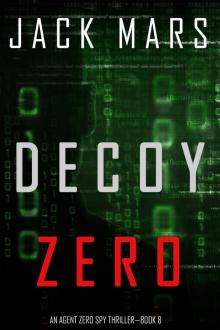 Decoy Zero
Decoy Zero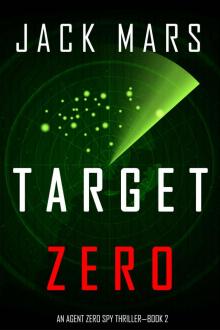 Target Zero
Target Zero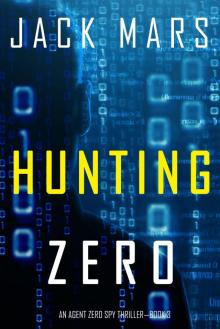 Hunting Zero
Hunting Zero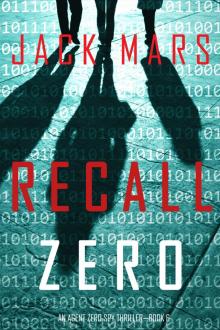 Recall Zero
Recall Zero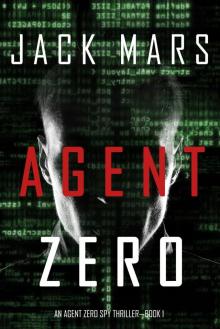 Agent Zero
Agent Zero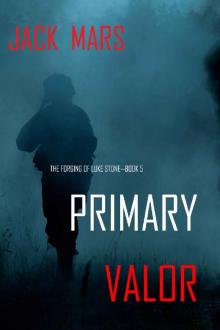 Primary Valor
Primary Valor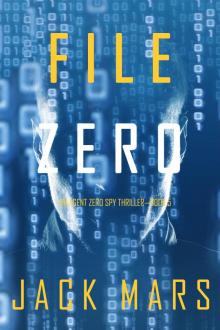 File Zero
File Zero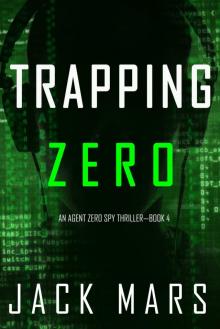 Trapping Zero
Trapping Zero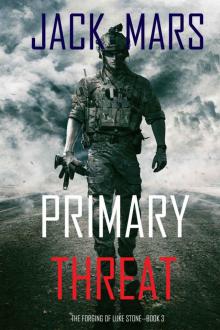 Primary Threat
Primary Threat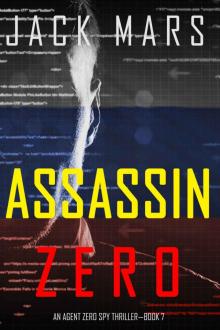 Assassin Zero
Assassin Zero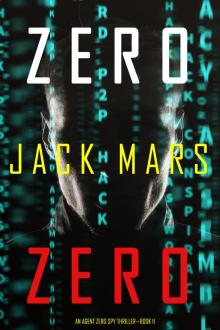 Zero Zero
Zero Zero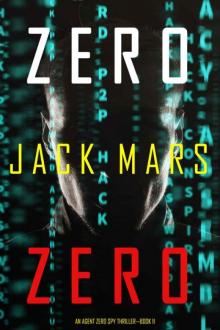 Zero Zero (An Agent Zero Spy Thriller—Book #11)
Zero Zero (An Agent Zero Spy Thriller—Book #11)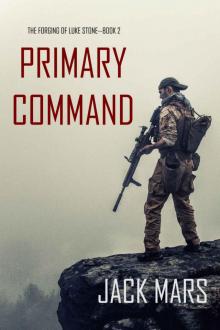 Primary Command
Primary Command![[Luke Stone 02.0] Oath of Office Read online](http://i1.bookreadfree.com/i/03/21/luke_stone_02_0_oath_of_office_preview.jpg) [Luke Stone 02.0] Oath of Office
[Luke Stone 02.0] Oath of Office House Divided
House Divided Oath of Office (a Luke Stone Thriller—Book #2)
Oath of Office (a Luke Stone Thriller—Book #2) Our Sacred Honor (A Luke Stone Thriller—Book 6)
Our Sacred Honor (A Luke Stone Thriller—Book 6)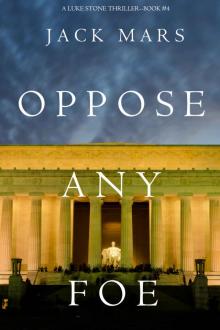 Luke Stone 04 - Oppose Any Foe
Luke Stone 04 - Oppose Any Foe Our Sacred Honor
Our Sacred Honor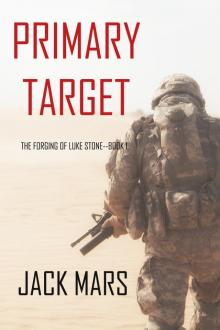 Primary Target
Primary Target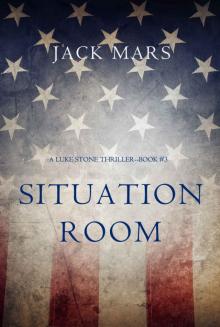 Luke Stone 03 - Situation Room
Luke Stone 03 - Situation Room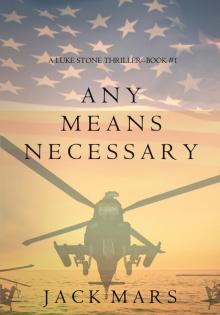 Any Means Necessary: A Luke Stone Thriller (Book 1)
Any Means Necessary: A Luke Stone Thriller (Book 1) Oath of Office
Oath of Office